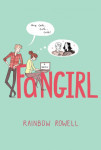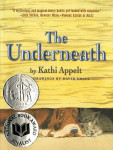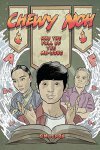Tim Learn's Blog, page 6
January 17, 2017
My Problem with YA
My Problem with YA
[image error]
Until last year, I never really delved into this subsection of books. To be honest, I don’t really divvy up my reading list into such nonsensical categories, but as I started writing more frequently, knowing these titles has become important. With it, I’ve begun to see there’s a large problem with most Young Adult books.
[image error]
First off—the dialog. I can’t stress this enough, but most of the talking between characters are weak and pretty much pure drivel. I have a feeling the author or authors are trying to sound real, trying to capture that ever-changing teenage voice with its new slang and subtle (sometimes) cynicism. In the end, the characters sound dry and stereotypical if not just plain rip-offs of things heard on TV and in movies. Though I know many teenagers parrot the shows and actors they love most, they aren’t all that flat—or at least I hope not.
[image error]
Secondly, there’s not depth. You might be wondering what I mean by that, but it shouldn’t be hard to figure out. I read many kinds of books. The classics I read are many times around 500 pages. They are thick and difficult and take me two to three weeks sometimes. On the other hand, YA books that fall in the 500 page range usually last me about a day or two. Why such a disparity? Simple—there’s no depth, none what so ever to these tree killers that so many people are dying over. I don’t see the draw.
In the end, I don’t see what the allure is to many of them. Is that to say that all YA suck? NO! Some is good. Some astounds, but the common and most lauded ones are base repeats of useless ideals. I hope teenagers today strive for more.
This Post is brought to you by:













January 16, 2017
A Look Back at My Reading List (2016 Part 3: Young Adult)
A Look Back at My Reading List (2016 Part 3: Young Adult)
[image error]
I have to admit I am somewhat leery coming to this section of my prior reading list. I have not always read so much in this area before, but felt I should expand into it. I mainly kept an eye out for books that seem to be trending a lot in the blogosphere and if I saw an author or their book pop up enough, I gave it try. In the end, I don’t know if that’s the best way about it. I might have to refine my process this year as there are definitely some bloggers out there that skew strongly from what I consider good taste.
This category is at least easy to shuck off from the rest of the world of books. The main requisite is having main characters that are young, ie in their teens. That being said, I’ve begun to see there are other aspects that YA can be linked to, but that is for another time. When all was said and done, I came away with 13 books here.
This number is low compared to other categories, but somehow it feels like I spent too much time here, despite YA books taking actually less time to read. Maybe this is because of how much ire and stewing followed the books, that they felt to sit in my brain for well after the cover was shut.
Here they are:















January 15, 2017
A Look Back at My Reading List (2016 Part 4: Middle Grade)
A Look Back at My Reading List (2016 Part 4: Middle Grade)
[image error]
I actually thought I read more hear, but now looking back at my list, few pop out at me. In total, I read 6 of them. Sad. I might try to up this number for next year.
Like it’s slight older brethren—YA—middle grade tends to be easier and faster to read, but somehow it feels like they are better written and have much more depth most of the time. I’d like to know why the teen years in books are so lacking, or am I only uncovering the bad YA?
Here are my middle grade reads:







January 12, 2017
Revisiting Grammar: Misc. Points
Miscellaneous Points on Modifiers and Adjective Clauses
[image error]
Now that you’re clear on what modifiers are, let’s look a little more at common mistakes a few authors do with them, beyond the rudimentary ones.
Twiddling his fingers, Tom walked over, staring at the baroque art.
Truly, there’s only a slight problem with this. As you can see, this sentence has two modifying clauses lined up right after the other. This can be fine, but too often, in beginner writing, I see this happen over and over everywhere—this includes mine own from time to time. The easiest way to fix it is to throw in a coordinating conjunction or FANBOYS, or use an infinitive. In this instance, this:
Twiddling his fingers, Tom walked over and stared at the baroque art.
or
Twiddling his fingers, Tom walked over to stare at the baroque art.
When it comes to adjective clauses, I’ve noticed another odd habit. See below.
Billy was shocked, seeing the car that shone a bright red.
All in all, it’s not that bad. But usually an adjective clause is used to append information to a noun that is something other than an adjective; hence, a clause. However, as you can see, the above clause is comprised of the adjectives ‘bright’ and ‘red’ which don’t need to be turned into a clause. The best way to write it then is:
Billy was shocked, seeing the bright red car.
Now, some may quibble that the ‘shone’ verb in the line lends a quality of shininess to the car as well as gives a certain style to the presentation. That may be true, but when this fault occurs over and over in a manuscript, it appears to be more than just a stylish tick.
[image error]
Another problem arising with this kind of writing is the dreadful hanging adjectives. Check it out.
He marched into the room, strong and proud, making his way straight to Tessa.
In the middle of this line, we see ‘strong and proud.’ Again, like the above one, it can be okay to use from time to time. But self-published works use it far too often. Any book that does so starts to take on an amateur sense to it.
With all the different techniques we can use as writers, one of the most important is variety—as I’ve mentioned elsewhere. Using one too frequently kills momentum. On top of that, it just feels lazy. In this situation, you either need to pump up your weak verb, or append the adjectives to their correct place.
In the end, these may be small flaws to address, but they are ever-present. And when it comes to the pen of bloodthirsty grammarians, leaning on the side of caution is always best.


January 11, 2017
Chapter Thursdays: Chewy Noh and the Phantasm of Winter / Chapter 24
It took a second or two for his eyes to adjust, and then before him, Chewy saw a long dark hallway with a glowing rectangle at the other end. He walked slowly, studying the walls. There was something holding him in, keeping him on the path toward the light ahead, but when he reached out, all he felt was something hard. Looking down though, he saw nothing but eternal blackness. He began going faster.
He glanced behind and saw a similar rectangle. This must be what the door bridge looks like, he thought, wondering why he didn’t recall it from the two times before when he disappeared. He started again toward the opposite end, the light growing bigger, and quickly he jumped through it, finding himself in Miss Wolf’s class. It had worked! He was here, and Kent was way back there somewhere in that bathroom with no clue as to how the great Chewy Noh had done it to him again. Chewy smiled. He was right. This was fun.
He looked up at the clock in the corner. He only had minutes to get in and out, so he had to work fast. He dashed over to Wolf’s desk and dropped down to the bottom drawer. He had observed her storing test answers in here before, but with the drawer open, it felt like a mixed blessing.
He had found the answers but there were more than a hundred. He paused wondering which one to take. Maybe if he took them all he’d be able to figure it out later? He frowned. That would never work. Miss Wolf would definitely know someone had been in here. He needed to find the answers, transfer them to a different sheet and get out. Everything looked too difficult now, and then his pocket buzzed.
At first, Chewy froze, thinking he had tripped off a silent alarm. He completely forgot that while changing clothes he had slipped his phone into the traditional red, blue, and yellow Korean clothes he now had on. He yanked the phone out. Who could be calling him at a time like this? He looked at the number. It wasn’t a familiar one and he stared, questioning whether to answer it or not. Finally, he did.
“Hello,” he wearily answered.
“Chewy!” It was Clint’s voice. “What happened? Are you in there?”
“Yeah, I’m fine. I’m in her classroom now, but—wait, when did you get a phone?”
Clint’s voice was frantic. “Is that really important right now?”
“I guess not,” Chewy said, smiling at Clint’s overly worried tone.
“Did you find it?”
Chewy looked back down at the pile of answer keys.
“Yes and no,” he said.
“What?” Clint screamed.
“Calm down, buddy. I see the answer keys. I just don’t know which one to copy.”
“Copy the unit eight test!” Clint yelled again. “And hurry!”
“We’re on unit eight?” Chewy said, pulling out a piece of paper from his other pocket and started copying down the answers from the top sheet.
“Don’t you pay attention in class?”
“Not really.”
He heard Clint exhale in frustration before he asked, “You got it then?”
“No problem,” Chewy said, holding up his copy and shut the drawer with his foot. “I’ll see you on the other side.”
“Wait!” Clint yelled.
Chewy froze. He heard it too—the sound of thick heavy boots coming down the hallway.
“If you run to the door right now, she’s going to see you in the side window. Is there any place to hide, you know, Chewy-style?”
“We’ll see what I can do. I’ll see you when I see you,” Chewy said, putting the phone in his pocket.
Clint was right. Going back through the door bridge to the bathroom was risky now. He had to do something else, but looking around, he felt a new dread sink in. There were no good hiding places in this room. If he hid under her desk, his brightly colored clothes would attract her attention in a second. He looked to the closet door covered in posters of planets and the solar system. Maybe he could hide inside there, but it’d be risky. Again, he looked like a walking rainbow.
Come on Chewy, he thought to himself, you’ve gotten out of tighter spots than this. Just a minute ago, you escaped Kent by using a bathroom stall! He turned, glaring at the closet. That was it!
He pulled out one, last rice cake from his pocket, sticking it to the bottom. He hoped Miss Wolf wouldn’t be too perceptive and find it there. Otherwise, he tore off a small piece of paper while already starting the ritual dance. He sped it up drastically and was slightly afraid that he had skipped a couple of steps. By the end of it, he had scrolled the incantation on the paper and smacked it to the center of the heavily postered door. His little addition would barely stand out above all the clutter.
With keys rattling in the door, Chewy grabbed the handle to the closet, stepping in. Only then did he realize he was entering a door bridge without an opposite end. His grandfather had warned him about this. But it was too late, and he was gone.
[image error]


January 10, 2017
Top Re-read of the Month: Catcher in the Rye
RE-READ: Catcher in the Rye
[image error]
Even though this is supposed to be about Catcher in the Rye, there’s now way I could write about this book without mentioning its author J.D. Salinger whose entire work needs more attention in order to shed good light on his classic teenager masterpiece. His writing style and content seem to me like an ever-present background that other writing juxtaposes. He is the green screen for weather reporters—always present, rarely noticed.
Though all of his writing is important to me, Catcher in the Rye, I feel, is too often overlooked or registered as some whiny teenage novel, which it isn’t. First, every other piece of writing by Salinger comes with his unbelievably wrought, over stylized sentences that make my head swim. But Catcher is the rare piece that diverges from this. He created a new style for it, one to fit the protagonist, and for this reason I feel many readers overlook it.
This is my hunting hat. I hunt people in it.
Above all else, it is a book about spirituality—not teenage angst. He wrote at a time before teenagers had perfected the art of angsty living, yet, sadly, we now look at it through our present milieu and overlay far too much of ourselves on it. This is why so many aged and jaded adults claim they just can’t relate to his whining, and yet, that’s exactly what Salinger is preaching about–that way we buy into the adultness of everything, forgetting our childhood to just play the game.
[image error]
Considering all of this, is not surprising why Holden wanted to be the titular catcher in the rye, saving kids from that vertiginous drop into adulthood? One day, I, too, will probably topple over that edge. I just hope this book will always be there to help others from doing so.
[image error]


January 9, 2017
A Look Back at My Reading List (2016 Part 2: Classics)
A Look Back at My Reading List (2016 Part 2: Classics)
[image error]
As I’ve mentioned before, I’m breaking down my reading list from last year to see where I’ve done a lot of new reading and maybe where I need to trim for the new year. My next stop: Classics.
As I said before in part 1, I did my best pull apart which books go in each category but sometimes it may not be so easy. Nonetheless, I ended up with 16 books. Mainly this is due to a lot of the rereading of classics I do with my students, so some titles here I’ve read before, although some are new. Overall, I think it is easiest to see that the largest word count and the longest time spent reading falls in this category. Classics are so because they take thought and aren’t thrown slipshod together. Although I know this loose definition is up for argument, it is the way I see it when it comes to this list.
Here they are:


















January 8, 2017
Chewy Noh: The Series!!!!!!!!
The Series is complete! Check out the adventures of Korea’s smallest boy and his best friend, Clint. Middle Grade Fantasy / Myth at its best!!!!!!!!!







January 5, 2017
Revisiting Bad Grammar: Weak Verbs
Weak Verbs
[image error]
Weak verbs are probably the worst flaw to correct. For that reason, the best time to tackle them is in editing. While you’re in the midst of writing, the last thing you want to do is slow down your momentum to come up with another word for ‘move,’ and yet that’s exactly what some do. But let me explain first.
This transgression is usually focused on dull, colorless verbs or verbs that find themselves stalked by adverbs. Check out below.
Billy ran quickly after Tessa, hoping he’d catch her before she got on the bus.
Or
Tessa moved across the room to see what the commotion was outside her front window.
In the first example, we see the use of an adverb, ‘quickly,’ paired with an inadequate verb, ‘run.’ Anytime you find an adverb in your manuscript, you must analyze it heavily to see if it is truly needed. This can be hard. Sometimes, the usage is colloquial habit. In that case, cut it. Sometimes, it’s style. Then make sure to keep it measured. In the above case, it would probably be best to dump both ‘ran’ and ‘quickly’ and replace it with a stronger verb, like dashed, darted, or even sprang.
[image error]
In the second, we see the usage of such a hoo-hum word, ‘move,’ that the character’s movements seem to be unimportant. Move—yuck! Traipsed—better! Paint a picture for us. Wow us. Don’t phone in the details of your story’s events and give us colorless action. This is when editing comes in handy. So do your best.
Now, in no way does this mean you should go crazy and throw in words that seem out of place, saying, “Tessa galloped across the floor.” Nor do you need to go medieval or Shakespearean on the verb, saying, ‘Tessa brought forth great strides to cross the room.” Some writers try to avoid a ‘plain’ verb so hard, that sometimes it ruins everything. In other words, keep it simple, but don’t bore us.
Other words to watch: look, eat, see, hear, smell, feel, cry, laugh, run, walk….and so on.
The only place this rule doesn’t count: said. When it comes to speech tags, overusing said is never a bad thing. You can occasionally say ‘yelled,’ or ‘snapped.’ But ultimately, ‘said’ should be the majority.


January 4, 2017
Chapter Thursdays: Chewy Noh and the Fall of the Mu-dang / Chapter 23
Chewy motioned to the Gills that he’d take the call in the living room. Alone, he asked his grandfather to continue.
“I don’t know where exactly to start,” he said, his voice coming through all static-like, “Let me first say your grandmother died.”
Chewy was confused, not only by how this had anything to do with his mom, but also because his father’s mom had seemed fine the last time he’d seen her.
“Not your paternal grandmother,” he said, frustrated, “Your mom’s mom.”
“I thought Mom told me she had died when she was young, before she could even remember.”
“That’s what I told her, but that’s not necessarily the whole truth. I hadn’t seen her, your grandmother, that is, in a while and when your father called me earlier, describing what was happening to your mom, well, it sounded too familiar. So I checked in on her.”
The phone went silent and Chewy thought he had somehow lost the connection if that was even possible nowadays.
“Hello?”
“I’m still here, just didn’t know how to say the rest,” his grandfather coughed before continuing, “Do you remember the mu-dang in the mountain, the one I had you see because of your…your…”
Chewy told him he remembered, hoping this would speed things along.
“She was your grandmother, Chewy.”
Chewy stared forward in shock. She was his grandmother, that old, bent-back woman! How could that be? But as he reviewed over it, a few things the old woman had told him began to make sense. Not to mention the tears when he last saw her from the bus window.
“I don’t understand,” Chewy said, rubbing his neck from stress.
“I can’t say I understand much myself, but I’ll try to explain,” the grandfather started, his voice becoming clearer, “Most young ones today don’t know much about mu-dangs, don’t know how it all works. I can’t say I do either but right after your mother was born, her mom, your grandmother, started coming down with headaches. She was laid up in bed for days.”
Clint peeked his head into the living room to see if everything was okay and Chewy nodded so that no one would worry. Then, he turned his attention back to the phone.
“I brought her to every doctor around. At the time, Korea wasn’t as advanced as it is nowadays, but even if it was, I don’t think any of them would have had a clue. And as time went by, she was only getting worse.”
This was beginning to sound very familiar to Chewy and he trembled as he listened.
“At this point, I was desperate. I had your crying mom at home to take care of. I didn’t know what to do, so…I listened to a friend of mine who suggested I see a mu-dang. I brought your weakened grandmother to the mu-dang’s house. This one lived in the countryside, and, after a brief examination, she explained everything to me.”
He paused briefly, his voice weak from talking before picking up again.
“There are two ways to become a mu-dang. You can study heavily, learning the rituals and the ways, or a divine spirit must contact you, bringing you into awareness of your powers. That’s what happened to your grandmother, or at least, that’s how the mu-dang explained it to me.”
“But why the headaches and fever?” Chewy spat out.
“No force in the world can act on another unless we allow it to. When it came to the divine spirit, those headaches and fever were signs of resistance from your grandmother. She was saying ‘no’ to the special gift.”
“Then why did she end up as a mu-dang?”
“She eventually accepted it,” he paused, the emotions welling up in him. “She had to. The mu-dang told me that if your grandmother didn’t accept the spirit then it would move onto the next living female in the family. That meant your mother.”
Chewy’s eyes widened.
“But she let the spirit enter her, no?”
“Yes, she did. She did it to save your mother and that’s when she and I decided it was best to keep it hidden from the family. Your grandmother moved up into that mountain and we pretended she was dead.”
“But…lying? Did you really have to lie about it?”
His grandfather hesitated, thinking over his answer.
“If your mother had known, her life would’ve been ruined. It’s not an easy thing to accept—someone else sacrificing themselves for you. And, besides, your grandmother and I had to think about the future. If people knew there was a mu-dang in the family, your mother would’ve never gotten married, would’ve never had you. We couldn’t risk that.”
Chewy shook his head at a strange thought.
“None of this makes sense. If grandma took the power, why is Mom sick now?”
“Since your grandmother is dead, the spirit has to move on. Your mother is the next female in line.”
Chewy stood up, wanting to do something, but he felt helpless.
“Mom can just reject it, right? I mean, there’s no other female left in the family. If she says ‘no’ to it, then it’ll leave.”
“Unfortunately, that’s not quite how it works. With no female in the family left, it will stay with your mother whether she wants it or not. The only way to get through this is if you tell her to accept it. Let it take her over.”
“Does that mean…Mom will disappear?”
“No, Chewy. She should be okay. She’ll just have joined with a higher spirit, but her everyday life will be different from now on. She will be a mu-dang.”
“Are you sure?”
“Not one hundred percent,” he paused, thinking about the future and said, “But I do know that you must get your mom to accept it. Otherwise, we’ve lost her forever.”
[image error]





